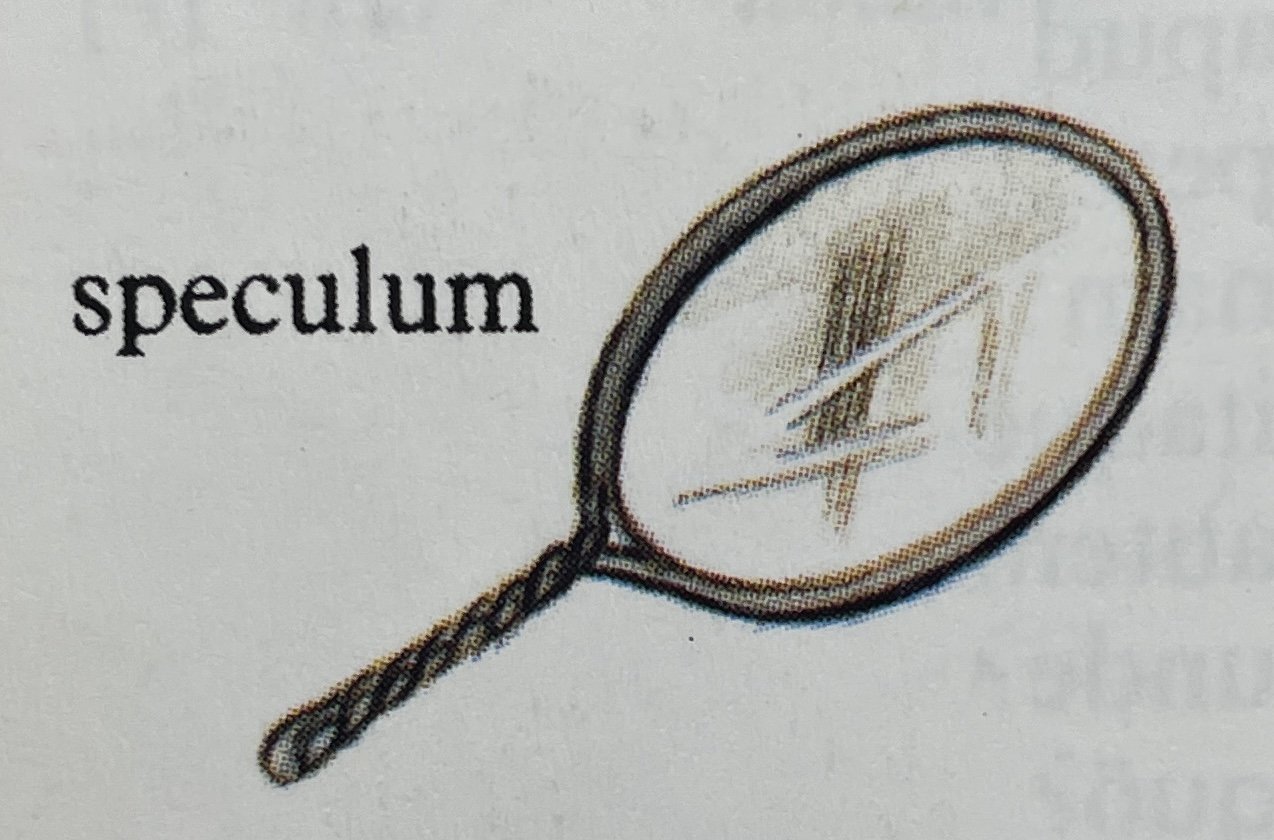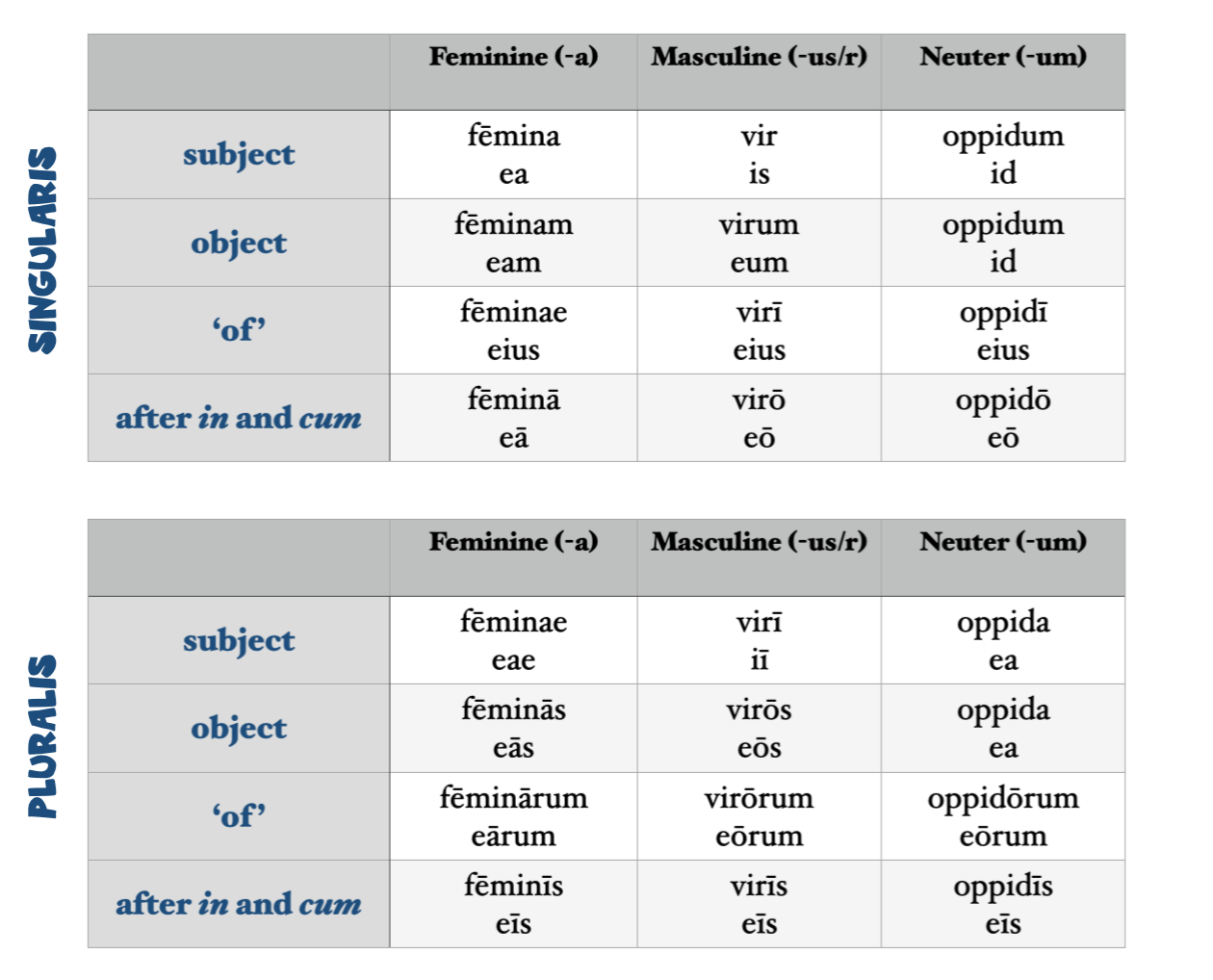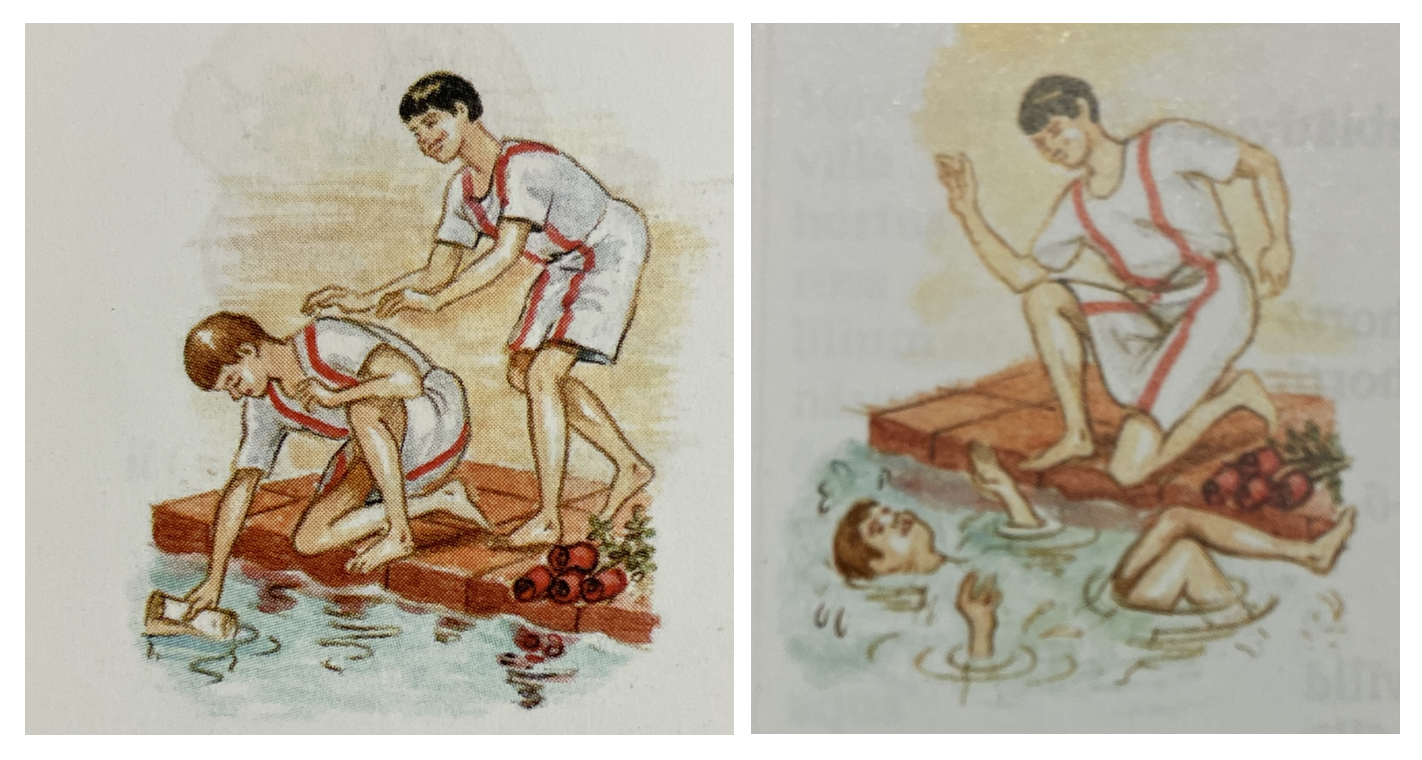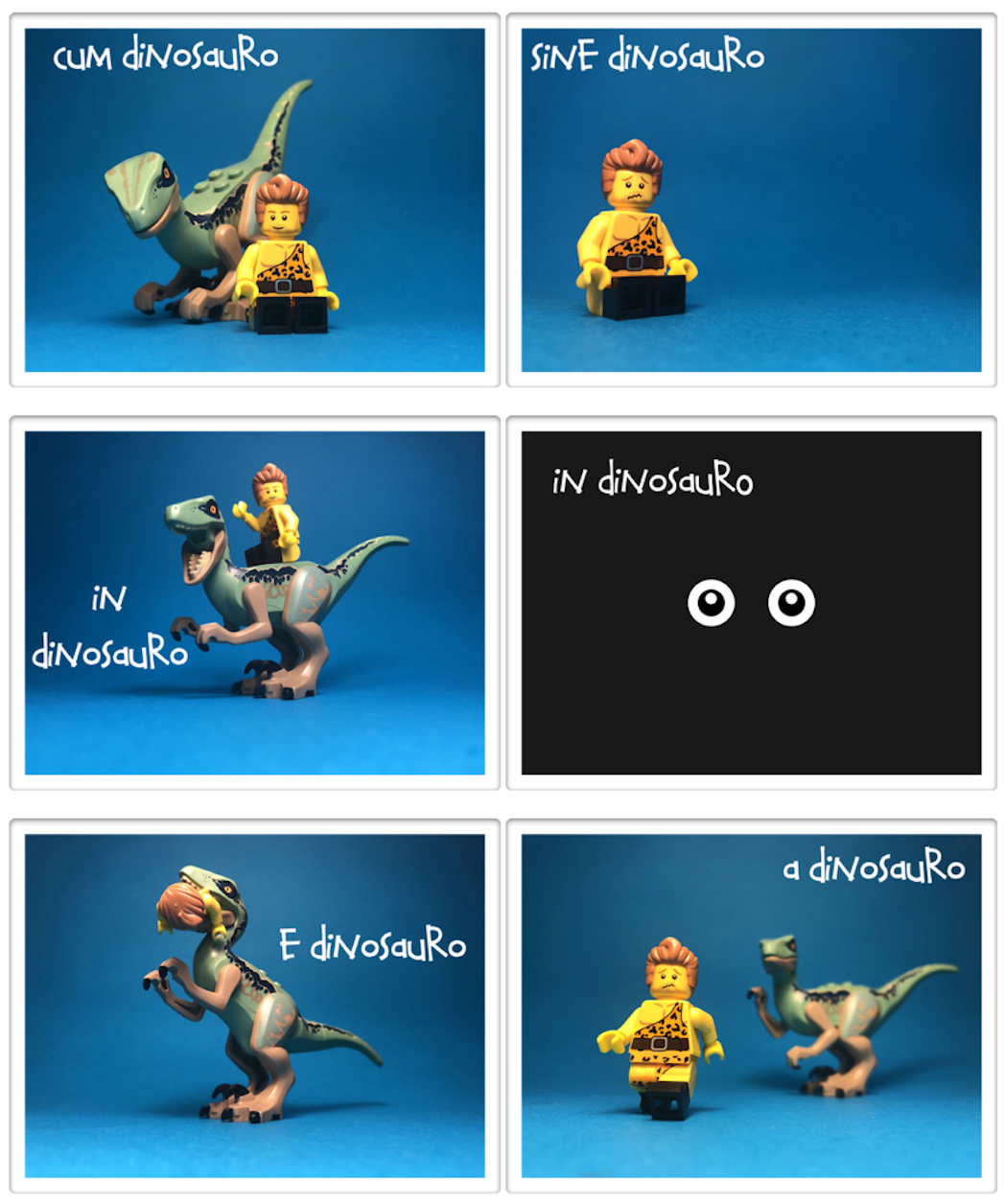Salvēte, sodālēs.
Let’s begin with speculum, which is illustrated in the margin.
from Lingua Latīna Per Sē Illustrāta, page 48.
Next, let’s move on to sē. Sē is a great little reflexive pronoun that can mean herself, himself, itself and even themselves - it all depends on who or what the subject is.
Iūlia sē in speculō videt. Julia sees herself in a mirror.
Marcus sē in speculō videt. Marcus sees himself in a mirror.
Monstrum sē in speculō videt. A monster sees itself in a mirror.
Iūlia et Marcus et monstrum sē in speculō vident. Julia and Marcus and a monster see themselves in a mirror.
We have the new verbs aperit/aperiunt and claudit/claudunt. The margin tells us that they are opposites, and the text makes it clear that they are both things that you can do to an ostium door. Try to deduce their meaning as your enjoy today’s reading. Pāret/pārent means obeys/obey.
Fōrmōsus, we are told, means there same as pulcher.
Lastly, some remarkable news about the preposition in. We have been learning that all prepositions are followed by either an accūsātīvus (ad, ante, post, inter, prope, circum, apud, per) or an ablātīvus (in, cum, sine, ā/ab, ē/ex).
The remarkable preposition in, however, can be followed by either an ablātīvus or an accūsātīvus. So far, we have only seen it followed by an ablātīvus, in which case it meant in or on, depending on context. From today’s lesson, we will also see it followed by an accūsātīvus. Then it will mean into or onto.
from Handy Latin Tables Pars Secunda
When in is followed by the accūsātīvus and means into it is the opposite of ē/ex.
from Lingua Latīna Per Sē Illustrāta, page 48.
Now READ Capitulum Septimum, lines 8-19.
-
aperit/aperiunt : opens/open
claudit/claudunt : closes/close
Satis est. See you shortly.


















































